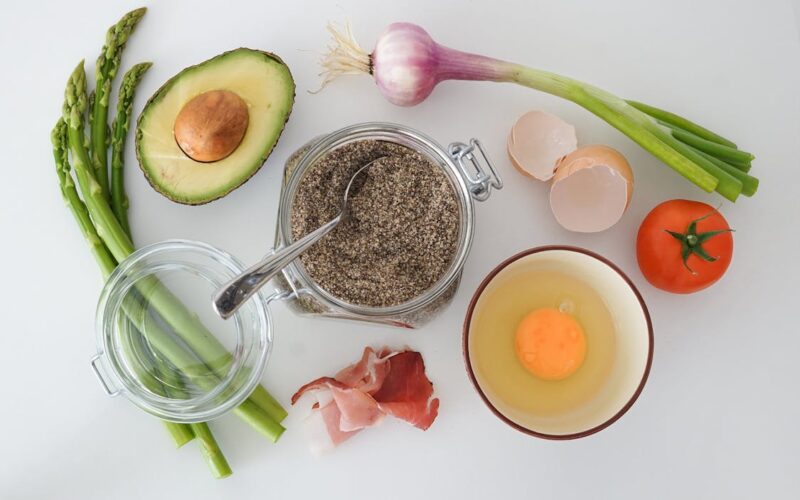In the intricate ecosystem of the human gut, the balance and health of our microbiome are essential for overall well-being. One key to maintaining a healthy gut is the consumption of prebiotics—indigestible fibers that feed the beneficial bacteria in our digestive system. This article delves into the role of prebiotics, highlights the foods rich in these nutrients, and explains how they contribute to a flourishing gut microbiome.
Understanding Prebiotics and Their Importance
Prebiotics are a type of dietary fiber that the human body cannot digest. They serve an important purpose: nourishing the beneficial bacteria, particularly those that produce essential nutrients like short-chain fatty acids, which can help to repair gut walls, reduce inflammation, and boost immune function. According to Dr. Helen Sanders, a nutritionist and gut health expert, “Prebiotics are fuel for the good bacteria in the gut. By feeding these beneficial microbes, we enhance our overall health through their metabolic activities.”
The benefits of a diet rich in prebiotics include improved digestion, enhanced immune function, better hormone regulation, and a decreased risk of chronic diseases such as obesity and type 2 diabetes.
Foods High in Prebiotics
Incorporating prebiotic-rich foods into your diet is an effective strategy for boosting gut health. Some of the best sources of prebiotics include:
- Chicory Root: Often used as a coffee substitute, chicory root is one of the best sources of inulin, a potent prebiotic fiber.
- Garlic: This common kitchen ingredient not only adds flavor to dishes but also acts as a powerful prebiotic.
- Onions: Similar to garlic, onions are rich in inulin and fructooligosaccharides, which help improve gut health.
- Asparagus: This vegetable is another great source of inulin and has been shown to promote friendly bacteria in the gut.
- Bananas: Especially when slightly green, bananas are a good source of inulin and also provide potassium.
- Barley: A versatile grain that is high in beta-glucan, a fiber with strong prebiotic benefits.
- Oats: Like barley, oats contain large amounts of beta-glucan and can support the growth of healthy gut bacteria.
Implementing Prebiotics into Your Diet
Start Slowly
When beginning to incorporate more prebiotic-rich foods into your diet, it’s crucial to proceed gradually. Introducing a large amount of dietary fiber abruptly can disrupt normal digestive processes, leading to uncomfortable symptoms such as bloating, gas, and cramps. Nutritionist Dr. Sanders emphasizes the importance of moderation. “Gradually increase your fiber intake over several weeks to allow your digestive system to adjust,” she advises. This method helps your gut bacteria adapt to the increased fiber and can minimize potential discomfort.
Moreover, starting slowly with prebiotics allows you to monitor your body’s response to different foods. Each individual’s gut microbiota is unique, and as such, reactions to dietary changes can vary. By carefully adjusting your intake and observing the effects, you can tailor a prebiotic-rich diet that supports your personal digestive health without overwhelming your system. This personalized approach ensures that you derive the maximum benefit from prebiotics while maintaining overall comfort and well-being.
Combine with Probiotics
For optimal gut health, it’s beneficial to pair prebiotic-rich foods with probiotic foods. Probiotics are live bacteria and yeasts found in fermented foods such as yogurt, kefir, sauerkraut, and kimchi. These beneficial microbes thrive on the indigestible fibers provided by prebiotics. By consuming both prebiotics and probiotics, you can create a symbiotic relationship within your gut. This combination helps to establish a more balanced and healthy microbiota, which enhances nutrient absorption, boosts the immune system, and can even improve mental health. Such a holistic approach not only supports the growth of healthy bacteria but also ensures a flourishing ecosystem in your digestive tract that maximizes overall health benefits.
Probiotics for Ulcerative Colitis: A Comprehensive Review
Regular Consumption
Consistency is key in maintaining gut health. Regular consumption of prebiotic foods supports a stable environment for beneficial gut bacteria to thrive. This, in turn, contributes to a more resilient digestive system and better overall health. Over time, a consistent intake of prebiotics helps maintain a balance of healthy bacteria, which can protect against harmful pathogens and reduce the incidence of gastrointestinal disturbances. Furthermore, a well-balanced gut microbiota is linked to numerous health benefits, including enhanced immune function and reduced inflammation. Thus, by integrating prebiotics into your daily diet, you’re not only supporting your digestive health but also promoting long-term wellness across various aspects of your health.
Embracing Prebiotics for Lasting Gut Health
Prebiotics play a crucial role in maintaining gut health by feeding the beneficial bacteria in our digestive system. Regularly including foods rich in these fibers in your diet can lead to significant health benefits, from improved digestion and stronger immune response to reduced inflammation and lower risk of chronic diseases. By understanding the sources and benefits of prebiotics, and implementing them thoughtfully into daily meals, you can take a proactive step towards better health and well-being.


